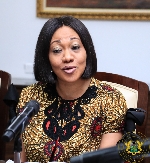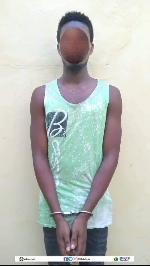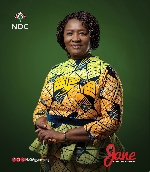Hong Kong cancels flights over protests

Thousands are gathered at the airport - which is one of the world's busiest.
In a statement, officials said operations had been "seriously disrupted" by the public assembly.
Many of those protesting are critical of the actions of police, who on Sunday were caught on film firing tear gas and non-lethal ammunition at close range.
Some protesters are wearing bandages over their eyes in response to images of a woman bleeding heavily from her eye on Sunday, having reportedly been shot by a police projectile.
In a statement on Monday, Hong Kong's Airport Authority said they were cancelling all flights that were not yet checked in. More than 100 flights scheduled after 18:00 local time (10:00 GMT) will now not depart.
Officials have advised members of the public not to travel to the airport but said arrivals already heading into Hong Kong would be allowed to land.
About 75 million passengers passed through the airport - which is a major international transit hub - in 2018.
"The information I got before we came in was that in the airport passenger terminal building there are over 5,000 protesters," Kong Wing-Cheung, senior superintendent of the police public relations branch, said.
It is unclear if police will try to move in to disperse the protesting group.
Hong Kong's mass demonstrations and unrest show no sign of abating, more than two months after they were sparked by a controversial extradition bill.
Beijing officials have strongly condemned Sunday's violence and linked violent protesters to "terrorism".
What happened on Sunday?
On Sunday afternoon, a peaceful rally in the city's Victoria Park led to clashes when protesters moved out of the area and marched along a major road despite a police ban.
There were confrontations in several central districts and police used non-lethal bullets in an attempt to disperse the demonstrators.
In the bustling central Wan Chai district, petrol bombs and bricks were thrown at police, who responded by charging at protesters.
A number of people, including a police officer, were injured in the clashes.
Videos on social media also showed officers storming enclosed railway stations and firing tear gas.
Footage inside another station showed officers firing what appeared to be non-lethal ammunition at close range and several police officers beating people with batons.
Local media outlets reported that suspected undercover police officers had dressed-up as protesters to make surprise arrests.
While protests in the city have turned increasingly violent, there were no reports of arrests during the three previous days of the airport sit-in.
What has the reaction been?
On Monday the Chinese authorities, who have not yet physically intervened to quell the unrest, used their strongest language yet to condemn violent protesters.
"Hong Kong's radical demonstrators have repeatedly used extremely dangerous tools to attack police officers, which already constitutes a serious violent crime, and also shows the first signs of terrorism emerging," Yang Guang, a spokesman for the Hong Kong and Macau Affairs Office (HKMAO), said at a press briefing.
"This wantonly tramples on Hong Kong's rule of law and social order."
Elsewhere, Cathay Pacific has warned staff they could be fired if they "support or participate in illegal protests" in Hong Kong. The development comes days after Beijing mounted pressure on the airline and a #BoycottCathayPacific campaign began to spread.
Hong Kong police have also unveiled a water cannon vehicle as a new tool to combat the protests.
Why are there protests in Hong Kong?
Demonstrations started in June in opposition to a proposed extradition bill, which would have allowed suspected criminals to be sent to mainland China for trial.
Critics said it would undermine Hong Kong's legal freedoms, and could be used to silence political dissidents.
Although the government has now suspended the bill, demonstrators want it to be fully withdrawn.
Their demands have broadened to include calls for an independent inquiry into alleged police brutality, and an amnesty for all arrested protesters.
Hong Kong is part of China but its citizens have more autonomy than those on the mainland.
It has a free press and judicial independence under the so-called "one country, two systems" approach - freedoms which activists fear are being increasingly eroded.
Source: BBC
Source: Emmanuel Mensah
Trending News

A/R: 'Must I to apologise for doing my security work?' – Osei-Mensah rubbishes ECG workers’ call for apology over GM’s arrest
13:11
Ejisu: CPP seeks injunction to stop April 30 By-election
08:33
Murder of US national: Police arrest 2 at Assin Prasso
10:31
Lack of public purse protection ‘pathetic’ – Sam Jonah calls out ‘weaponisation of state agencies against opponents, assault on press freedom'
04:02
Dec 7 polls: Let’s stay united, do away with internal disputes – Asiedu Nketiah to NDC members
12:18
NDC to outdoor Prof Naana Opoku-Agyemang as running mate today
08:29
Movement for Change can evolve into a political party in the future: Kyerematen
13:20
Let's do away with 'slash and burn' politics- Adutwum
03:26
UW/R: I can’t’ve the man I defeated as my successor – Akufo-Addo tells Wa Naa
12:15
Submit 2023 audited financial statements by May – Akufo-Addo orders SOEs
07:48



